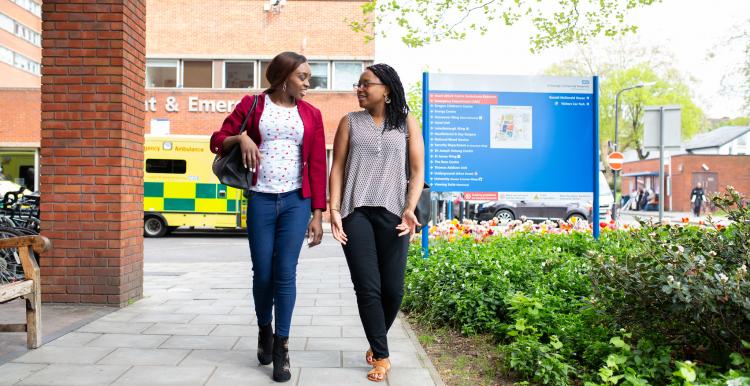Hertfordshire NHS Under Pressure

The situation is so serious that health bosses and the most senior doctors and nurses in Hertfordshire have united to deliver a hard-hitting message to the public.
On their behalf Dr. Prag Moodley, GP and Clinical Chair of East and North Hertfordshire CCG said:
"The Accident and Emergency departments at our hospitals only have the capacity to treat people who have serious, life-threatening or dangerous conditions. Ambulances should only be called in genuine emergencies. If you use emergency services incorrectly you are risking the lives of others and won’t get the best treatment for your illness."
"If you come to A&E in Hertfordshire with a minor condition or illness, your care will not be a priority and you will face an extremely long wait. You may be sent away to visit a GP or pharmacist. If you call 999 for an ambulance and your life is not at risk, you could endanger the life of another person in desperate need of emergency care."
"If you are feeling unwell and are not sure which is the right service to help you, the best advice is to call NHS 111. The NHS 111 service is free and supported by a team of doctors, nurses, paramedics and pharmacists. They can advise you on the help you need and even book you an appointment when your own GP is closed. NHS 111 can also advise on late-opening pharmacies, minor injuries units, mental health help or urgent care centre services. The adviser will direct you to the nearest service to where you are, and if you’re really unwell, can arrange for an ambulance for you."
"Please do not come to hospital as a patient or a visitor if you have a common winter illness, such as a chest infection, cough and cold, diarrhoea or vomiting. Spreading your minor illness to people who are seriously ill can close hospital wards and won’t get you the help you need. Our services are under extreme pressure, which is why it’s vital that everyone understands the urgency of the situation and what they can do to protect essential hospital services this winter."
There are a number of ways to get health advice and care if you, a family member or a friend feel ill:
- Use the NHS website for advice and information on how to look after yourself and your family. It covers thousands of illnesses and conditions.
- Phone NHS 111– for free, round the clock help when your GP is closed, when it’s an urgent but not a life-threatening 999 situation, or if you are unsure where to go to get the right help for your medical condition.
- Visit a pharmacist– for expert advice and low-cost medicines to ease your symptoms and help treat your condition. Every area has a late opening pharmacy and most have consulting rooms where you can ask for advice in private. Go to the NHS website to find your nearest open pharmacist.
- Make a GP or nurse appointment– as well as bookable, routine or non-urgent appointments, which are now available every day of the week in this area through the ‘extended access’ scheme, GP practices have a limited number of slots available each day for those who need to be seen urgently. When you call, you may be offered an appointment with a practice nurse, if this is more appropriate.


